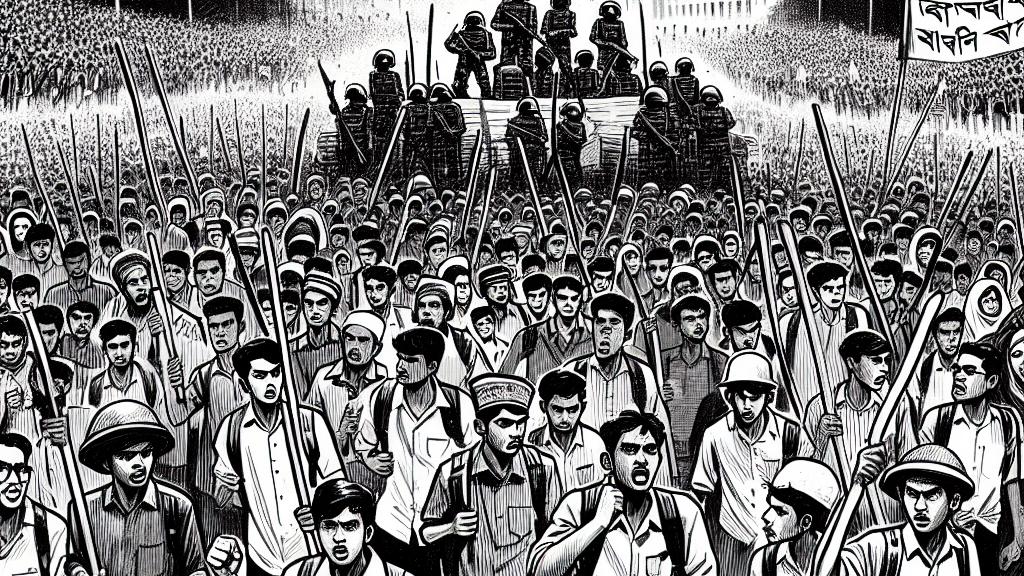Dhaka Duel: Students and Ansar Members in a Clash of Titans!
Overview
- An intense clash in Dhaka, Bangladesh, between students and Ansar members left nearly 40 injured.
- The conflict erupted over the detention of student activists and broader grievances against authoritarian practices.
- This protest is a part of ongoing civil unrest, reflecting youth movements' demand for justice and accountability.

Background of the Unrest
On the night of August 25, 2024, Dhaka, Bangladesh, became the epicenter of a significant confrontation, as students rallied against the Ansar, a government-backed security force. The catalyst for the gathering stemmed from recent reports of violence against student leaders advocating for rights in the face of perceived governmental oppression. Armed with sticks and passion, more than a thousand students marched toward the Secretariat, where Ansar members had camped, blocking access to essential government buildings. The tensions escalated quickly as the protesting students, who voiced their frustrations, labeled the Ansar as 'agents of autocracy', indicating the depth of their discontent toward the current regime.
Violence and Responses from Authorities
What began as a push for peace and justice turned into chaos as the Ansar initially retreated but then launched a violent counteraction against the students, culminating in physical confrontations that led to bricks and sticks being employed as weapons from both sides. Police deployed sound grenades in an attempt to control the crowd as injuries mounted. By the end of the altercation, almost 40 individuals had been hurt, underscoring the violent atmosphere. The injured were transported to Dhaka Medical College Hospital for treatment, which highlighted the urgent need for appropriate measures to address civil dissent without resorting to violence. This incident not only reflects the immediate fallout of confrontation but is part of a larger pattern of civil unrest emerging within Bangladesh, where protests have frequently turned deadly, raising alarms around human rights.
Broader Implications for Civil Rights in Bangladesh
The violent clash encapsulates the broader dilemmas faced by Bangladesh’s youth as they grapple with the struggles for civil liberties and government accountability. Increasingly, younger generations are mobilizing against what they perceive as systemic injustices stemming from years of mismanagement and authoritarianism. The protesters are not just fighting for the immediate release of their peers but also challenging a government that has consistently demonstrated a lack of responsiveness to civic demands. The ramifications of such protests could influence future governance if the demands for transparency, justice, and human rights are acknowledged and acted upon by authorities. As Bangladesh stands at a crossroads, the actions taken following this incident could determine the path toward reform or further oppression, thus shaping the political landscape for years to come.

Loading...